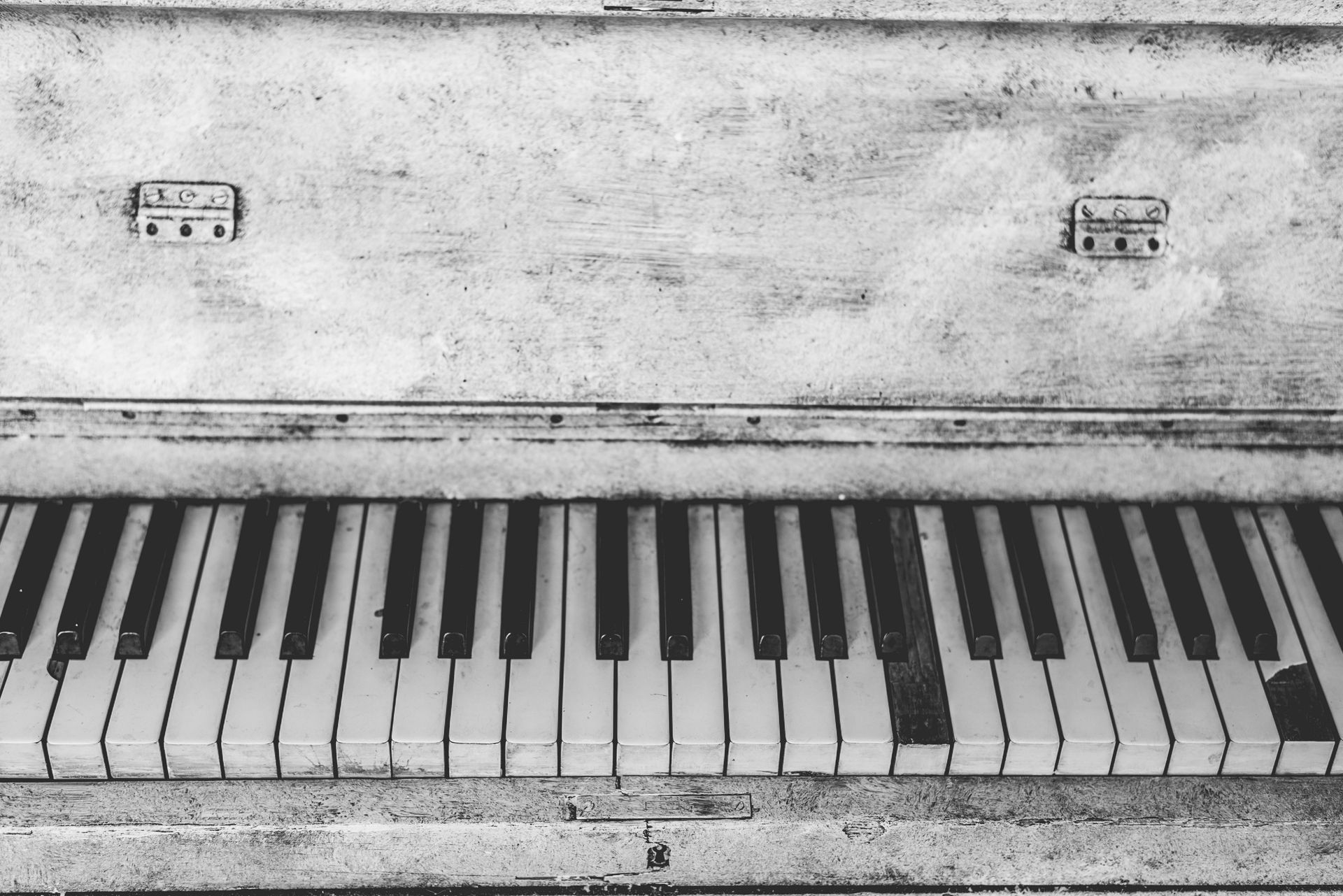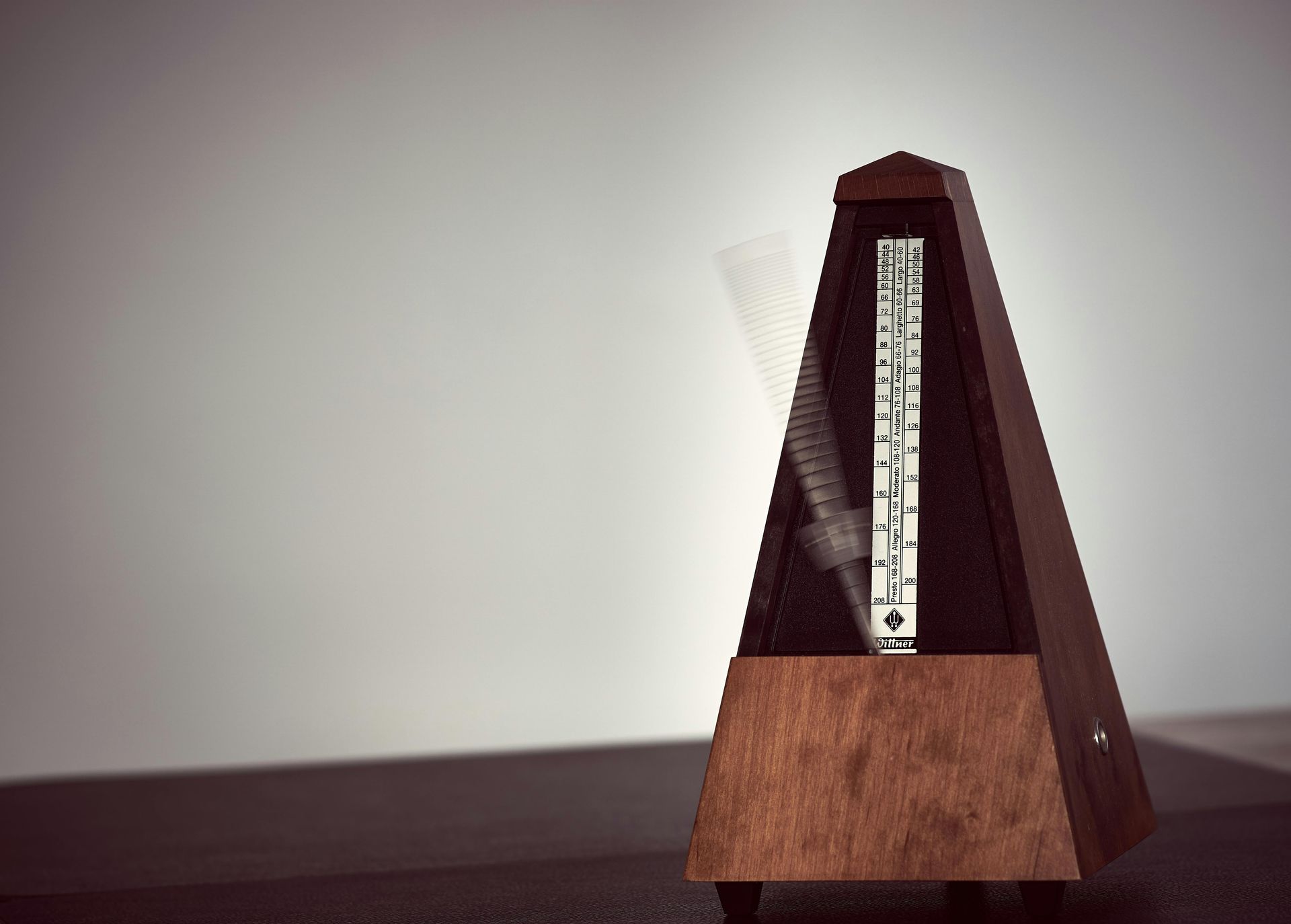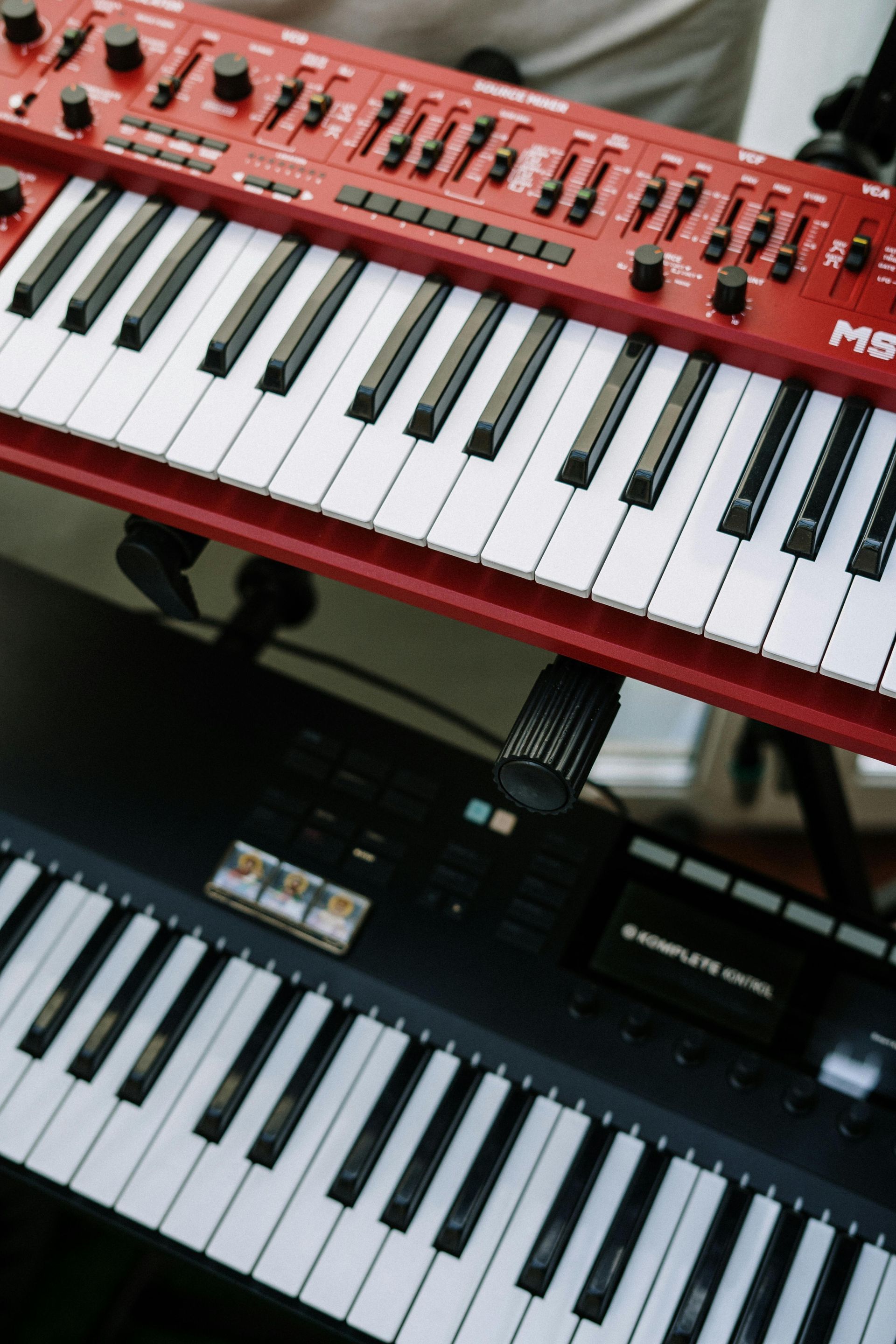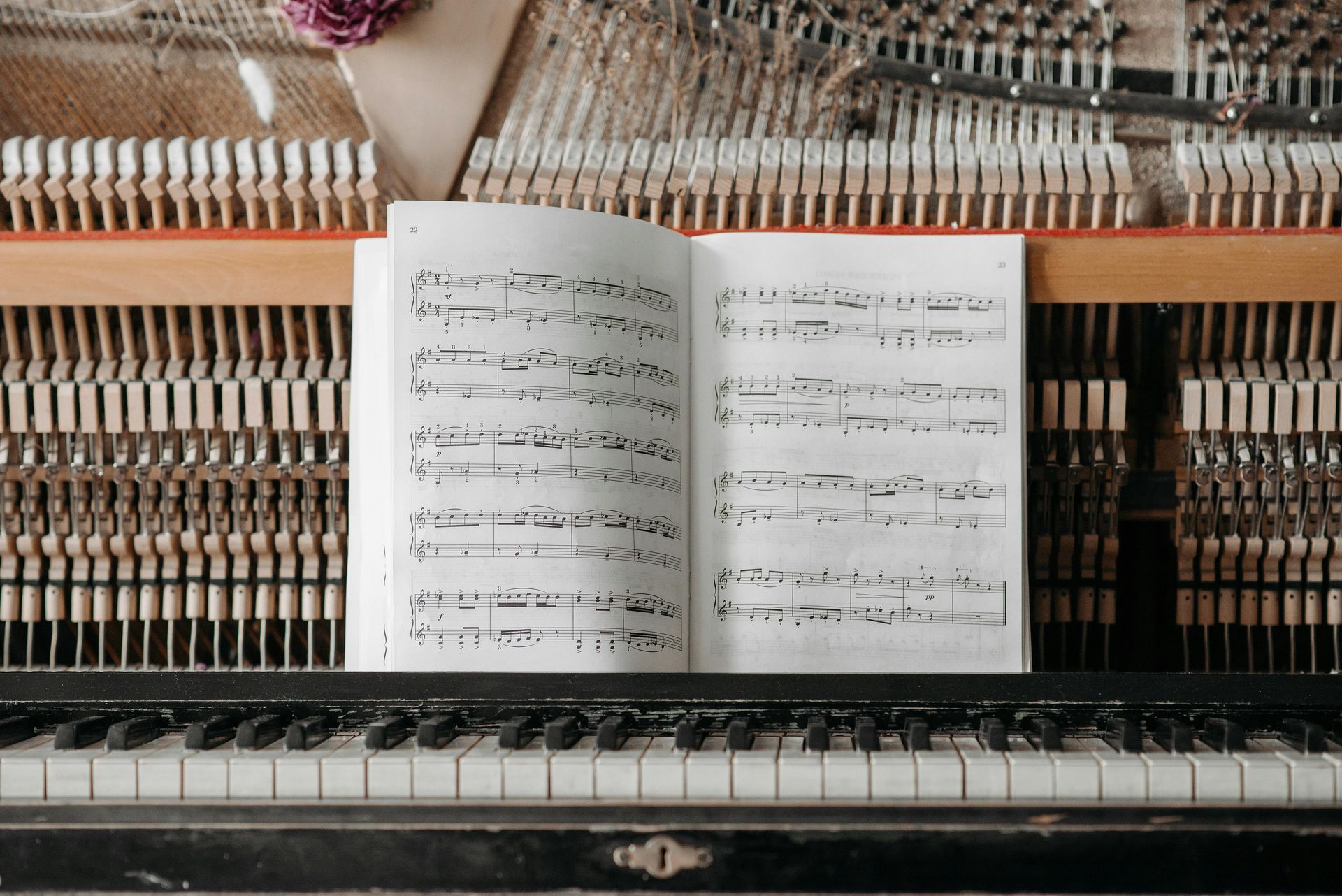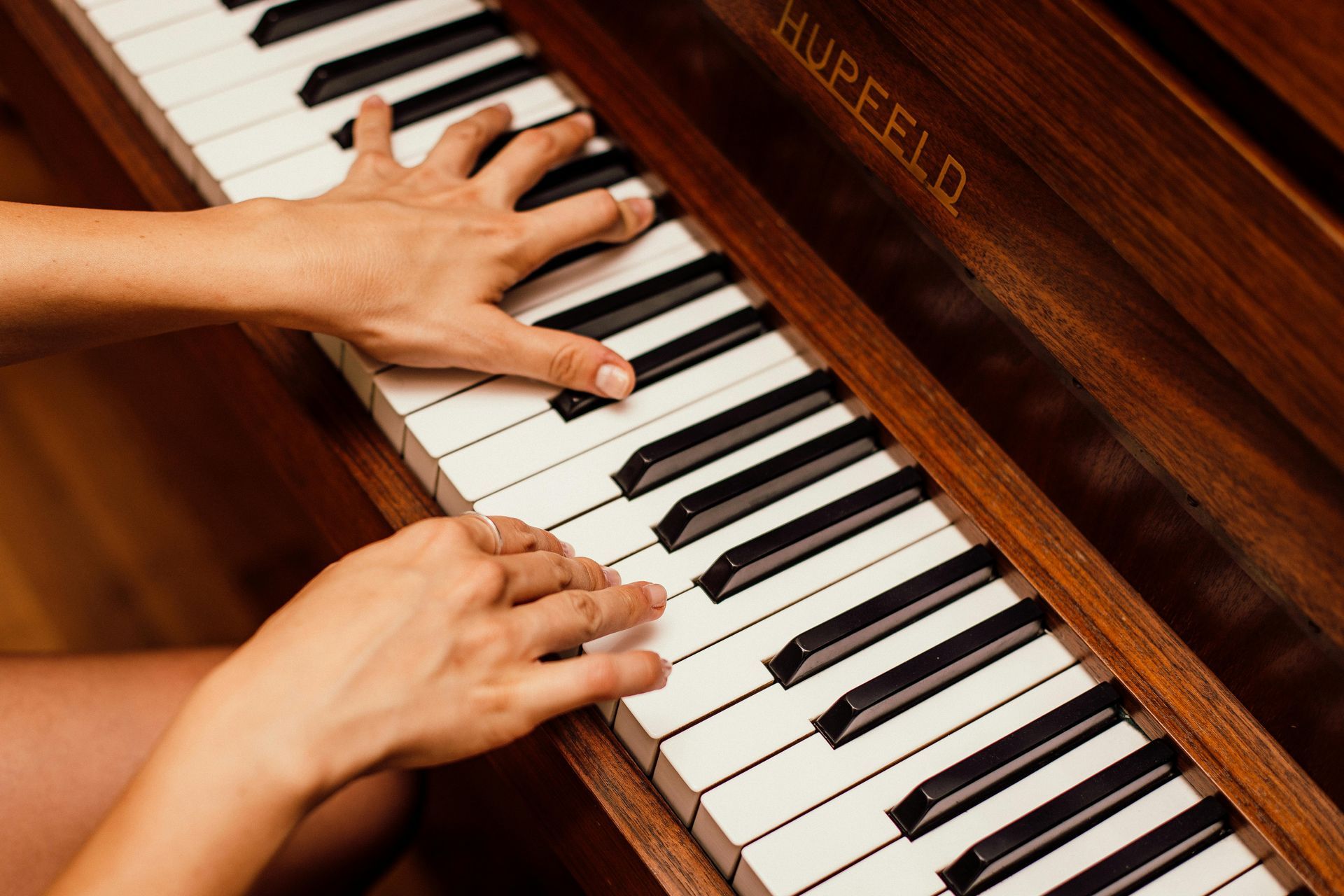How To Know When Your Child Is Ready For Piano Lessons
Is Your Child Ready for Piano Lessons?
Here's How to Know
Introducing your child to the magical world of music through piano lessons can be an enriching experience. But how do you know if they’re ready? While enthusiasm is a great starting point, developmental readiness plays a crucial role in determining whether your child is set for success at the keys.
This guide will walk you through the key factors to look for when assessing your child’s preparedness for piano lessons. From basic skills like counting to more advanced abilities like focus and instruction-following, these insights will help you make an informed decision.
1. Can Your Child Count to Four?
Being able to count to four may seem like a simple milestone, but it’s an essential first step toward learning to play the piano.
Why Counting Matters
Music is built on rhythm, and most beginner piano pieces rely heavily on simple rhythmic patterns organized around counts of four. By counting beats, children learn to establish timing, an essential component of playing piano in tempo.
A Foundation for Early Progress
Kids who have a strong grasp of counting will find it easier to coordinate their fingers with the notes they’re learning. For instance, playing a repetitive pattern in a 4/4 time signature will require them to count consistently to maintain the rhythm.
If your child is still learning their numbers or showing difficulty keeping track of small sequences, it may be helpful to focus on number games or activities that develop their counting skills before enrolling them in piano lessons.
2. Do They Have Basic Motor Skills?
Piano requires coordination, and that depends on well-developed motor skills. Pressing piano keys accurately, coordinating both hands, and sustaining hand-eye synchronization can be challenging for younger children whose dexterity is still developing.
Why Coordination Is Key
When playing the piano, your child is required to use their fingers independently and in harmony. For instance, they might play a melody with their right hand while accompanying it with chords from their left hand. Exercises that involve grasping, pointing, or manipulating objects can help develop these motor skills before piano practice begins.
Piano Lessons Foster Motor Skill Growth
The good news is that piano practice itself is a fantastic way to improve coordination and fine motor skills. Even for children with slight motor skill delays, working with an experienced teacher can gently build dexterity over time.
If you notice your child struggling with tasks like holding a pencil or buttoning a shirt, consider practicing activities that focus on finger and hand strength before starting piano lessons.
3. Can They Differentiate Left from Right?
The concept of left and right forms the foundation for many piano techniques, as the keyboard is divided from the center outward. Your child will need to understand which hand corresponds with which side to place the correct fingers on the appropriate keys.
How “Left vs. Right” Plays a Role
Many simple songs for beginners assign the melody to the right hand and the bass notes to the left hand. Distinguishing their left from their right ensures they can confidently follow instructions and identify their placement on the keyboard.
Development Through Practice
If your child is still working on their left-right understanding, don’t worry—piano lessons can help reinforce this concept. Teachers commonly use strategies like labeling hand positions or tying colored ribbons to wrists to assist with the learning process until the skill becomes second nature.
4. Can They Stay Focused for 30 Minutes or More?
Learning piano demands attention and sustained focus, both essential during lessons and practice sessions. If your child is prone to distractions or struggles to sit still for longer than a few minutes, they may find it challenging to get the most out of piano lessons.
Why Focus Matters
Most beginner lessons last 30 minutes, which includes learning new concepts, practicing songs, and receiving teacher feedback. Maintaining focus for this duration is important for absorbing information without frustration.
Tailoring the Learning Style
Every child learns differently. Some children on the autism spectrum, for example, may do better with shorter, more frequent lessons or visual aids that simplify the pace of learning. If your child shows an interest but struggles with focus, a good teacher will adjust the pace and format of lessons to align with their learning style.
Try incorporating activities that promote concentration, like puzzles or memory games, before committing to piano lessons.
5. Are They Able to Follow Instructions?
Learning to play the piano is a step-by-step process, often requiring repetitive practice and the ability to listen carefully to feedback. If your child demonstrates the ability to follow instructions, they’re more likely to succeed and feel accomplished in their lessons.
Doing Well with Directions
Piano learning involves multi-step directions such as identifying which fingers to use, pressing specific piano keys, and maintaining consistent timing. If a child struggles with following instructions, even simple activities like finger exercises may feel overwhelming.
Building Instruction-Following Skills
If your child has difficulty taking directions, there’s no need to rush. Engage them in other structured activities first, like baking (where instructions dictate each step clearly) or crafts that require following sequences. These methods can ease them into listening and responding positively to guidance.
A supportive piano teacher will also adjust their approach if your child’s learning style doesn’t align with traditional instruction methods.
Helping Your Child Begin Their Piano Journey
Starting piano lessons is a big step in your child’s development—and yours as a parent! By checking their readiness across these five areas, you’ll help ensure the experience is both enjoyable and rewarding.
Key signs of readiness include:
- Counting confidently to four.
- Developing motor skills for coordinated hand movement.
- Understanding left from right.
- Focusing for at least 30 minutes.
- Being receptive to following instructions.
If some of these abilities aren’t fully developed yet, don’t worry! You can work with your child on foundational skills and revisit the idea of piano lessons once they’re ready.
Remember, every child develops at their own pace—it’s all about setting them up for long-term success. Once you determine your child is ready, their piano lessons could be the start of a lifelong passion for music and creative expression.


